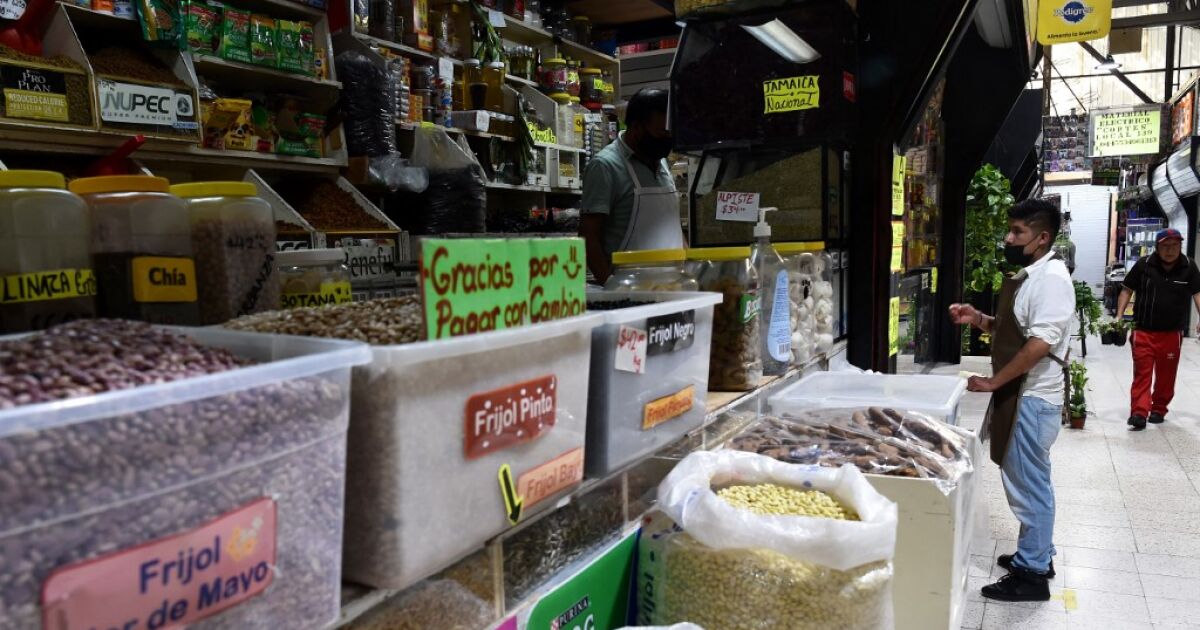Last Wednesday, the head of the Treasury, Rogelio Ramírez de la O, presented a package of 16 actions that the Mexican government, in conjunction with the private initiative, will launch to contain inflation, through actions to reduce logistics costs and of operation of the producing companies.
Long-term actions
Some of the actions, such as strengthening road safety, increasing food production, reducing costs and customs clearance time, and operating customs 24 hours a day, do not have results in the short term and require more public resources not contemplated. in the design and approval of the economic package at the end of last year, explained Ilse Madrazo Butze, a member of the Foreign Trade Commission of the Association of Public Accountants of Mexico (CCPM).
In the package against inflation there are other measures that imply the non-collection of tariffs, for six months, on the importation of 21 of 24 products of the basic basket and 5 strategic inputs.
“Although we do not yet have the details of how they will apply, it is important to know that these products are sensitive, and therefore they are protected with tariffs, such as the case of chicken, which can have tariffs of up to 70% with countries that do not have trade agreements. ”, detailed the member of the CCPM.
Are oil revenues enough?
Meanwhile, other measures can increase spending budgets for programs such as Sembrando Vida and Produccion para el Bienestar, “while on the other side you have promises of spending everywhere: transfers to Pemex, increases in pensions, and where are we going to get for the following years?” questioned Alejandra Macías.
According to Ramírez de la O, these actions will be financed with extra oil revenues, in relation to what was budgeted, which are reaching the public coffers due to a higher price of Mexican crude.
The question is whether the extraordinary oil revenues will compensate for all the shortfalls due to the money that is no longer reaching the public coffers, due to the IEPS cessation of gasoline to contain the increases in its price, warned Mariana Campos, coordinator of the Public Expenditure and Accountability Program in Mexico Evalúa.
more cuts
The specialist explained that the results of the first quarter of public finances show a preview of how they will come in the year and what is already happening: such as lower income from VAT, and cuts or delays in the expenses of dependencies, autonomous bodies, same that have already been authorized, and should not be cut without authorization from Congress.
The report of the first quarter of 2022 of public finances details that the autonomous organizations saw their spending reduced by 12,443 million pesos compared to what was programmed. The Judicial Branch reported the largest cut, with -6,463 million pesos; the Legislative Power, with -2,580 million pesos, and the INE, with -990 million pesos.
“Considering that revenues are not growing, the most logical option for the government would be to cut other expenses, which can even be seen in the first quarter,” said Campos.
The CIEP specialist considered that other ways to obtain resources are to increase tax collection, or resort to public debt.
For just six months, Ramírez de la O estimates that the cost of gasoline subsidies will be 330,000 million pesos. Raque Buenrostro, head of the SAT estimates that for the whole year it could be up to 400,000 million pesos.
The Treasury estimates that the contributions of the federal government for these measures represent 1.4% of the GDP estimated for 2022, contemplating the expenses that they will represent, only considering the strengthening to guarantee food security through social programs, subsidy to domestic electricity and subsidy to the gas.
More risks
Gabriela Siller, director of economic and financial analysis at Banco Base, explained that it is unlikely that excess oil revenues will be able to cover all the proposed stimuli, including those related to the price of gasoline.
“The higher unbudgeted public spending creates pressure on Mexico’s public finances and increases the probability of cuts to the credit rating,” he considered.
Likewise, there is a risk that the government, in order to keep public finances in balance, temporarily generate a greater under-exercise in spending on physical investment. With this, the government would slow economic growth instead of boosting it, since spending on physical investment has the potential to generate a multiplier effect on the economy, Siller said.








